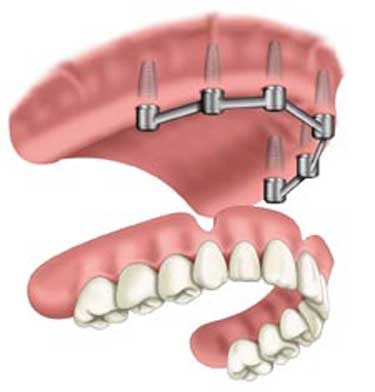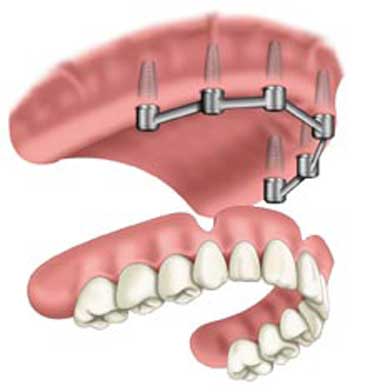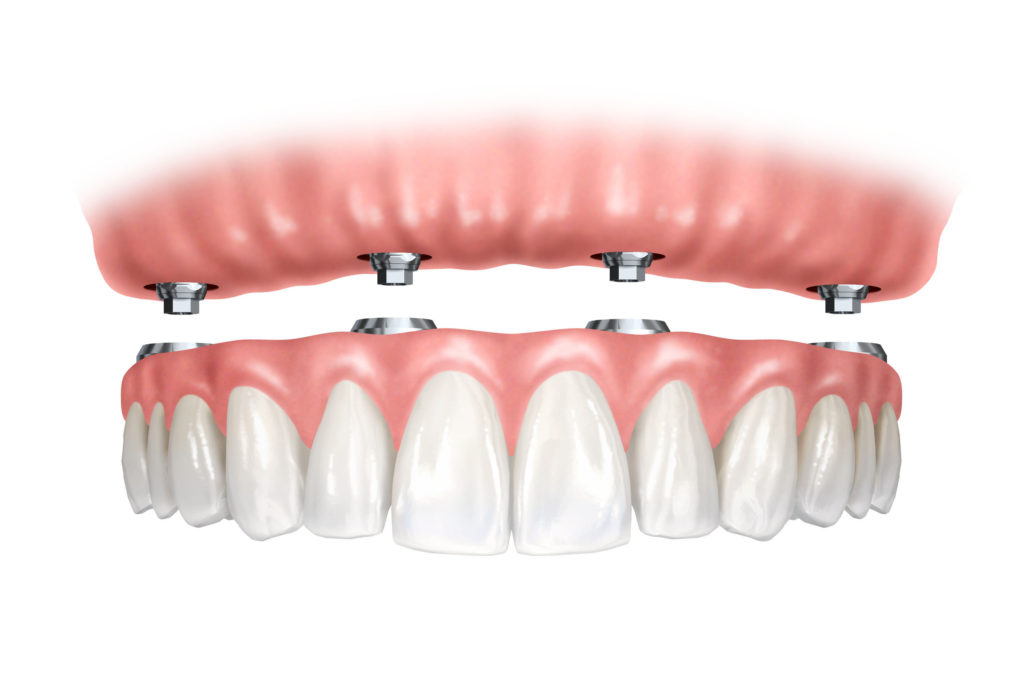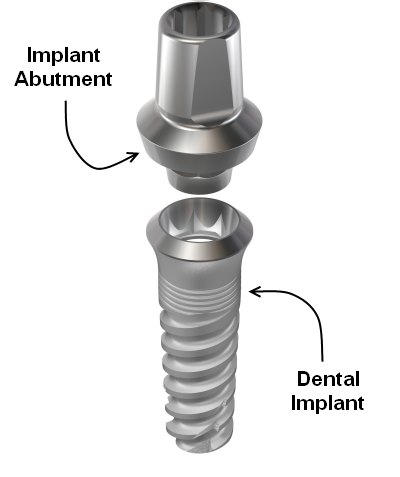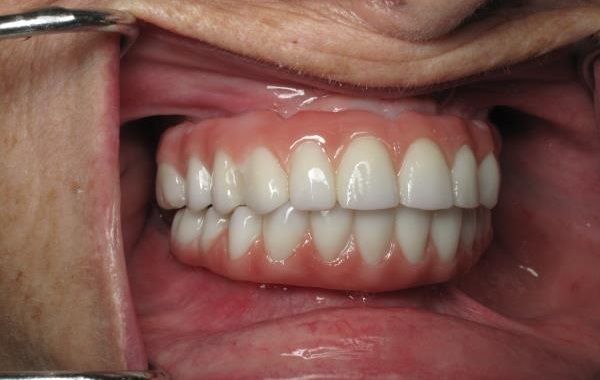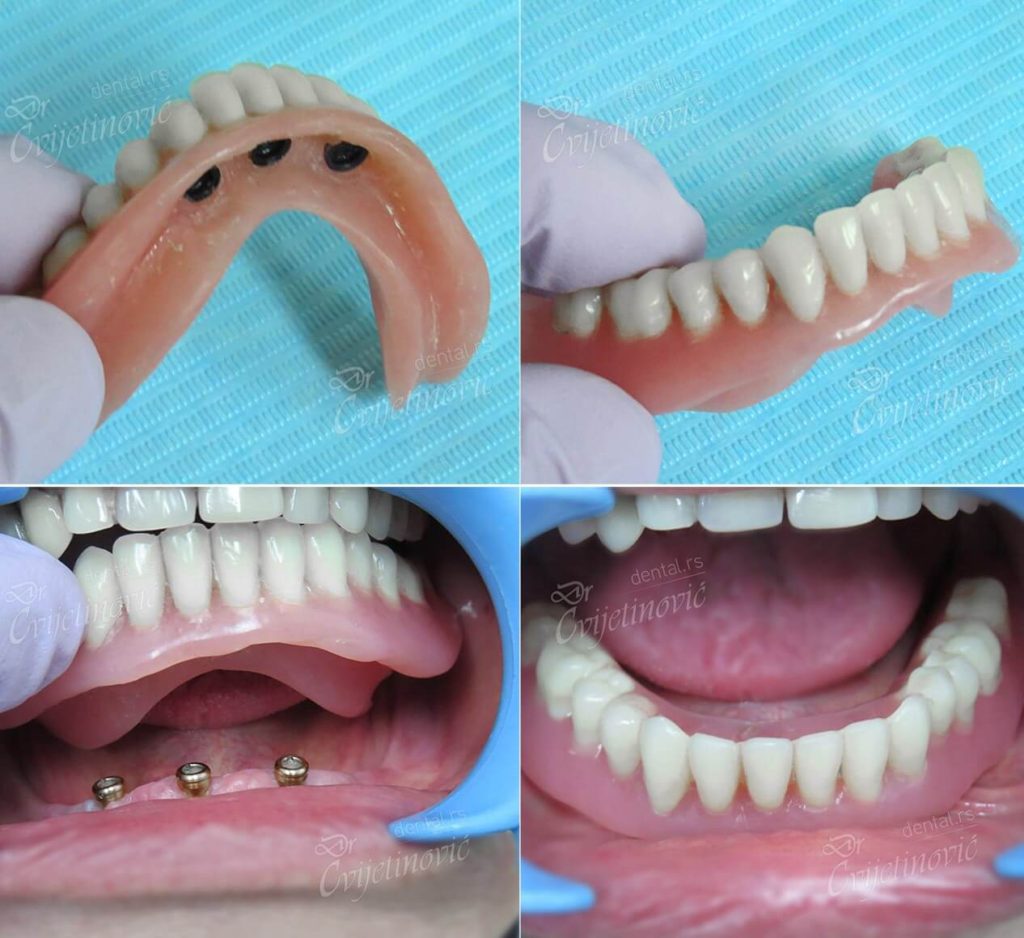Denture life can be rocky (pun definitely intended), but there is an option that may help with the ups and downs!
A regular denture sits on top of the gums and does not attach to any type of support structure. The lack of support can cause rocking or slipping when you eat, cough, or simply take a deep breath! An implant-supported denture snaps onto dental implants that are permanently placed into the jaw. The implants act as anchors to stabilize and secure the denture. It can be snapped in and out for daily oral care.
There are two types of implant-supported dentures:
Bar-retained: A thin, horseshoe shaped metal bar is attached to at least two implants that have been placed into the jawbone. The denture fits over the bar and is clipped into place by metal attachments
Ball-retained: Each implant has it's own attachment to the denture. The attachments are ball or peg shaped and they fit into sockets on the denture.
In both types, the denture will be made of an acrylic base that will look like gum tissue. Porcelain or acrylic teeth are adhered to the base. The base has metal attachments that snap onto the implants.
The Process
Once you and your dentist decide that an implant-supported denture is the way to go, the first step is placing the implants. This step is often done by a dental specialist (periodontist or oral surgeon) and involves placing the implants in the jawbone. An incision is made in the gum and a hole is drilled in the bone. The implant is placed into the hole and the incision is stitched closed. This implant will typically need 3-6 months to fully integrate into the jawbone before the next steps can take place. During this time the incision heals over and oral care continues as usual.
After the initial healing period, your dentist will take an x-ray to determine if the implants have fully integrated into the jawbone. Next, a small incision will be made in the gums to expose the implants and place healing caps on top of the implant screws. These healing caps stay in place for 10-14 days and train the gum tissue to heal around the future abutments (the part that the denture will snap onto). The healing caps are then removed and the abutments are placed.
Now that the implants are all set, your dentist will take an impression of your gums/implants to make the denture. Most labs take around 2 weeks to build the denture. You will need to return to your dentist a few times to try-in and adjust the denture for an optimal fit.
Life with an Implant-Supported Denture
Game changer! You will likeky experience more stability and support now that you have implants supporting your dentures. We hope that this allows you to eat, drink, and be merry!
Implant-supported dentures should be removed daily to clean the denture, abutments, and gum area. Most dentures can be brushed just like natural teeth. Same goes for gum tissue, implant abutments, and your tongue. Just as with regular dentures, you should not sleep with the implant-supported dentures at night. Your gum tissue needs time to "breathe"! Dental implants can fail and become loose if they are not cleaned properly. You should remain on a regular cleaning schedule with your dental hygienist to maintain optimum oral health. Oral cancer screenings should still be done at least once a year.
If you are tired of the ups and downs of life with a traditional denture, talk to your dental care providers about the option of an implant-supported appliance! It may make your life a whole lot less...rocky.
*all photos are for example only - individual results always vary
